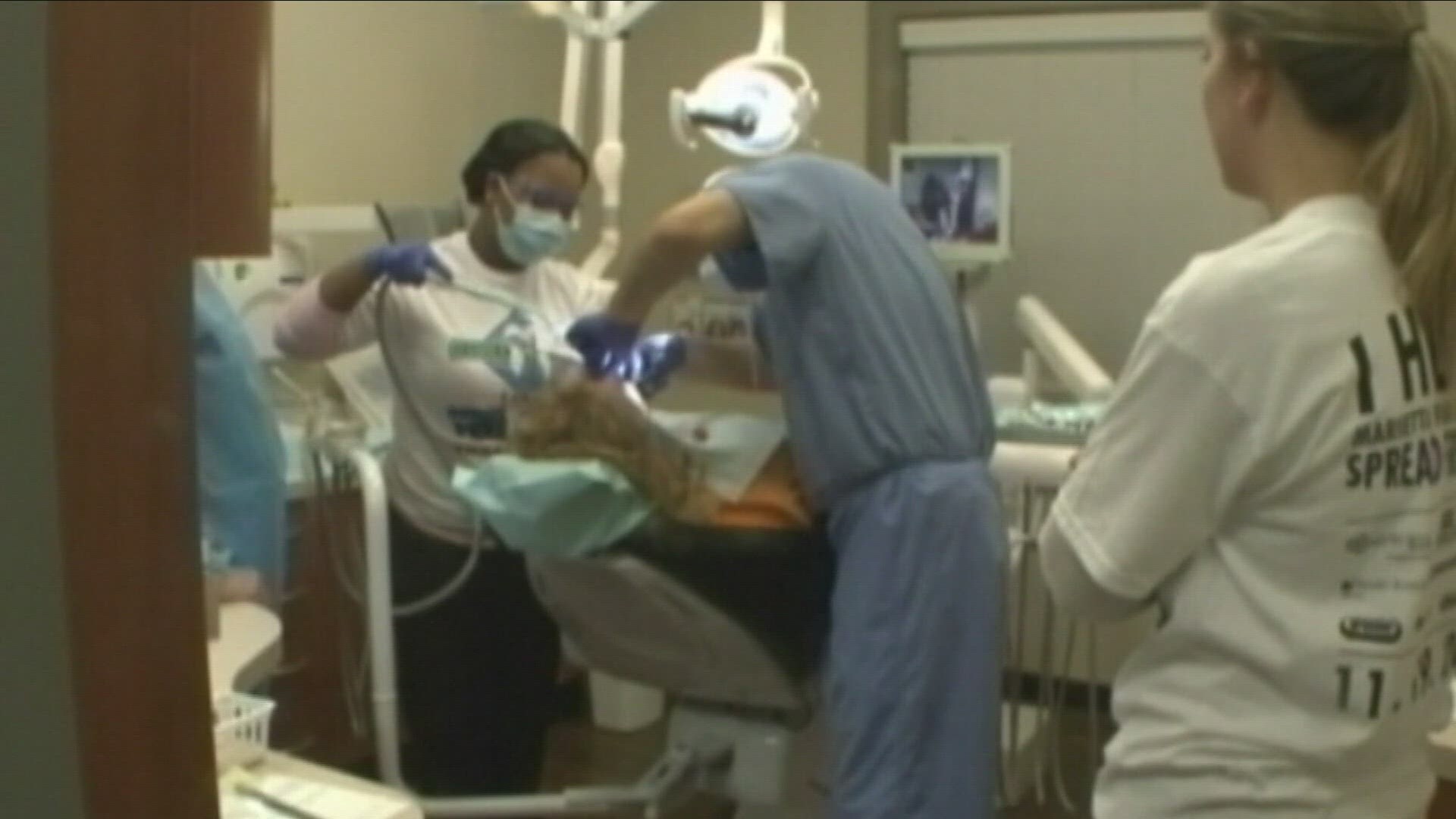BUFFALO, N.Y. — There is a new study co-authored by a clinical assistant professor in the School of Dental Medicine at the University at Buffalo that shows a connection between how well you chew your food and your health - especially if you have Type 2 diabetes.
If you have Type 2 diabetes, the results of this new study at U.B. might make you want to pay more attention to how you take care of your mouth.
It found people who chew the right way have lower blood sugar levels, which is very important for people with Type 2 diabetes.
"You are controlling your blood glucose level by the chewing function. The nerve directly goes to your intestine and stimulates the hormone that's controlling your blood glucose level is taking a signal from the nerve from your masseter," explained Dr. Mehmet Eskan, who authored the study.
He says signals from nerves around your teeth also tell your brain you've chewed enough food to be full.
Dr. Mehmet Eskan is a clinical assistant professor in the School of Dental Medicine and he gathered data from 94 patients with Type 2 diabetes. Half had teeth that could properly chew, and half were missing teeth or couldn't chew at all.
His study found people who chewed their food had an average blood glucose level of 7.48, two percentage points lower than the people with missing teeth who came in at 9.42.
"If you have proper chewing and then you are going to have more fiber and then, you know, more fiber the more food you have, you're going to also regulate your blood glucose levels," said Dr. Mehmet Eskan.
Dr. Eskan says this also helps build a case for more people getting dental implants, and just taking care of health problems with your mouth as soon as possible.
"Anything that happens in your mouth is going to dictate your immune system. So better to get your infections under control, then you will see your blood glucose level's going to drop by itself. I mean, of course, the patient is going to use the same, you know, the regimen or the medication he's been using, but in addition to that plan, you know the, just helping the diabetic patient much better controlling blood glucose levels," said Dr. Mehmet Eskan.
Dr. Eskan says he hopes to study more patients, but he also pointed out that the two-percent difference in the average blood glucose levels in the study makes an even bigger difference when it comes to heart, kidney, and eye health. An increase of just one-percent boosts your chances of having major heart problems by 40-percent.

